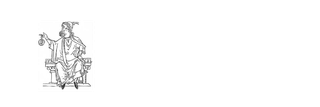Doctrina Machumet
The Questions of the Jew Abdia to the Prophet Muhammad according to Christian Tradition

A critical edition of the Latin text on the basis of the relatively numerous manuscripts as well as the two first printed editions are still pending and frame the core of the project. Beyond this, I plan to analyze the adoption of the Doctrina in Christian Europe, which to date has not been investigated in detail. A comparison with the Arabic original is also currently lacking and has proved to be difficult: It has not been critically edited yet, in fact a "definitive" edition of this text seems to be impossible because of the various different versions (cf. J. Kritzeck, Peter the Venerable and Islam, 1964, 89; an in all probability incomplete list of manuscripts is provided by Pijper in his Leiden Dissertation of 1924, 35ff). An issue printed around 1867 in Cairo which had previously been considered "undiscoverable" (Bobzin) has since been detected in two copies, and a 19th century English translation from an Arabic original as well. In any case, extensive investigations into the manuscripts will have to be made which shall lead ideally to identification of the copy used by Hermann of Dalmatia or at least to a similar version. In any case, the edition of the Latin text will have to be accompanied by an Arabic text, if necessary the nearest determinable version. This will be done with the support of an Arabist (Post Doc) experienced in edition philology. Finally, the annotation of the work also requires Judaistic expertise in addition to Arabistic expertise, because not only the questions of the Jew Abdia but also Muhammad's answers are thought to date back to Jewish legend tradition to a large extent. Therefore it is essential to recruit an expert in this field (a Judaism specialist) as a fellow. He/she would then be involved at a later stage of the project in the commentary and positioning of the Doctrina , which needs to be contextualised in terms of Jewish-Muslim relationships.
The scientific examination of the Doctrina will allow us to analyze the Christian reception of a work which can - after the Koran - be regarded as the most important "literary source" of Islam for the Latin Middle Ages and Early Modern Times; it was hitherto and still is in the shadow of the research dealing with the Latin Koran reception and has therefore been neglected by scholars to a large extent. Nevertheless, it has contributed significantly to shaping the image of Islam in the Western World, and thus deserves intense investigation as several scholars have recently emphasized. On the other hand the identification and critical analysis of the sources of the Doctrina should provide important information about the legendary tradition regarding Muhammad's relations with the Jews of Medina. The Doctrina Machumet thus offers a twofold alternative for examining examples of constellations of religious contacts during the institutionalisation and propagation of the Abrahamitic web of traditions: on the one hand the confrontation between the Latin occident (first Spain and then remaining Christian Europe) and Islam since the 12th century, but also on the other hand, the influence of Judaism on Islam when it was emerging in the 7th century and the indirect repercussions this gave rise to on the Jewish-Christian-Muslim relationship in the Occident. The project aims therefore directly fit into the underlying concept of the research consortium.
Affiliated Person
Affiliated Persons


